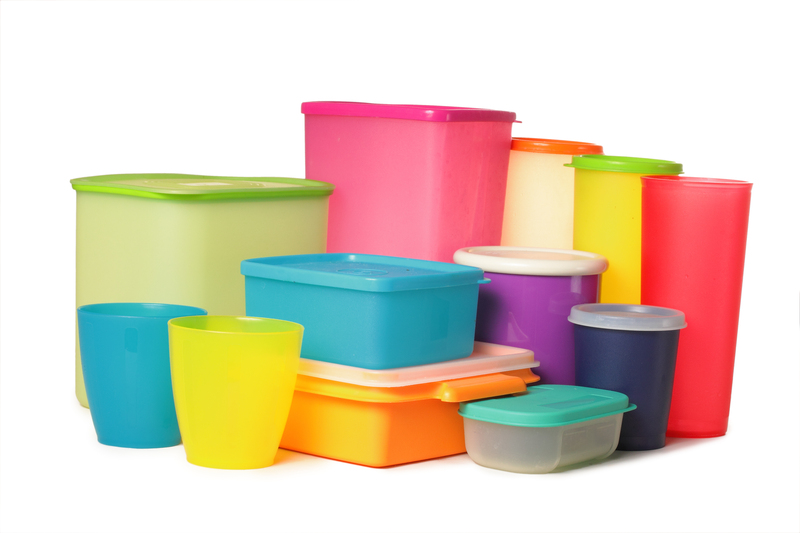Upgrade Your Kitchen Responsibly: Disposal and Recycling Tips
Are you planning a kitchen makeover? Before you start tearing down cabinets or tossing out old appliances, it's essential to think about how your kitchen upgrade can be done in an eco-friendly way. Responsible disposal and recycling during a kitchen renovation reduces landfill waste, saves resources, and can even benefit your community.
Why Responsible Kitchen Upgrades Matter
Every year, millions of tons of construction and demolition debris, including old kitchen appliances, cabinets, countertops, and fixtures, end up in landfills. However, with a bit of planning, upgrading your kitchen doesn't have to harm the environment. By learning and applying the right kitchen disposal and recycling tips, you can make a big difference in reducing waste and promoting sustainability.
Key Environmental Benefits
- Reduces landfill waste by diverting usable materials and appliances to recycling centers or donation programs.
- Conserves resources by giving old items a second life or ensuring their materials are reused.
- Decreases pollution from landfilling and raw material extraction.
- Supports the local economy by donating to charities and rehome programs.

Eco-Friendly Kitchen Upgrade: First Steps
Before you swing the sledgehammer, ask yourself:
- What can be reused, recycled, or donated?
- Are there local programs for appliance or material disposal?
- How can I reduce waste during my kitchen renovation?
Planning ahead will make the process smoother and more sustainable.
Sorting Kitchen Items for Disposal & Reuse
Divide all kitchen components into the following categories:
- Reuse or Donation: Cabinets, countertops, sinks, unbroken tiles, working appliances, hardware, lighting fixtures, cookware.
- Recycle: Metals, glass, certain plastics, electronics, construction debris.
- Trash: Broken, contaminated, or unusable material not accepted by reuse or recycling programs.
Disposing of Old Kitchen Appliances Responsibly
The Impact of Appliance Waste
Appliances like refrigerators, microwaves, ovens, and dishwashers can be challenging to dispose of safely. Many old units contain refrigerants, hazardous materials, or valuable metals. Improper disposal can mean environmental harm and the loss of recyclable resources.
Best Practices for Appliance Disposal
- Check If Appliances Still Work: Functional appliances are in high demand at thrift stores, shelters, and community organizations.
- Donate or Sell: Consider giving away your old kitchen appliances through:
- Local charities (e.g., Habitat for Humanity ReStores, Goodwill, Salvation Army).
- Online marketplaces (Facebook Marketplace, Craigslist, Freecycle).
- Friends, family, or neighbors.
- Recycling Old Appliances:
- Contact your municipal waste authority about curbside bulky item pickup or designated appliance recycling sites.
- Ask your new appliance retailer if they offer a "haul away" and recycling program.
- Look for certified e-waste recyclers for small kitchen electronics.
- Schedule Special Collection: Some items, like refrigerators, require special handling of refrigerants. Schedule collection with certified professionals.
Responsible Disposal of Kitchen Cabinets and Countertops
If your cabinets or countertops are in good condition, they can be reused or repurposed:
- Donate to Building Reuse Centers: Organizations like Habitat for Humanity ReStore accept salvageable kitchen cabinets and counters.
- Sell or Give Away Locally: Use online platforms for quick, local pick-up.
- Repurpose Materials: Convert old cabinets for garage, basement, or shed storage. Old countertops can serve as workbenches or craft tables.
Recycling Options for Damaged Items
If items are no longer usable:
- Wood and Laminate: Some recycling centers accept these if free of hardware, glue, or contamination. Check local guidelines.
- Stone and Quartz: Engineered stone and quartz may be recyclable for use in roadbeds or concrete. Ask your local facility.
- Metal Hardware: All handles, brackets, and metal supports can usually be recycled with scrap metal.
What to Do With Old Kitchen Fixtures and Sinks
Preserve and Rehome Fixtures
- Sinks and Faucets: Stainless steel sinks and metal faucets can be taken to scrap yards or given away for reuse.
- Lighting Fixtures: Donate or sell vintage and working modern fixtures.
- Plastic Parts: Check for recycling numbers on plastic fixtures--many can go in your regular bin or drop-off center.
How to Recycle Kitchen Electrical Items and Electronics
Old blenders, coffee makers, toasters, and other small appliances contain plastic, metal, and sometimes circuit boards.
Steps for Responsible Disposal of Small Kitchen Electronics
- Check for manufacturer take-back programs (such as recycling mail-back options).
- Find drop-off locations for e-waste recycling in your area.
- Remove and recycle batteries separately.
- Never throw electronics in the general trash, as many contain hazardous materials.
Disposing of Old Kitchenware, Utensils, and Cookware
- Usable Dishes, Glasses, and Silverware: Donate to shelters, resale shops, or offer to college students and community centers.
- Broken Ceramics and Glass: Many recycling centers accept glass, but play it safe--ceramics often cannot be recycled in regular glass streams.
- Old Pots and Pans: If not suitable for donation, recycle as scrap metal. It's important to remove any plastic or wooden parts first.
Sustainable Choices for New Kitchen Materials
When upgrading, choose products and materials that align with sustainability principles.
Selecting Eco-Friendly Appliances
- Energy Star Certified for reduced energy use and utility bills.
- Low water usage dishwashers and faucets.
- Smart appliances for optimized performance and energy saving.
Properly recycling or repurposing the old units ensures your upgrade is doubly responsible!
Sustainable Cabinet and Counter Choices
- Reclaimed or Recycled Content in cabinetry or counters.
- FSC-certified wood for sustainable forest management.
- Natural stone or recycled glass surfaces.
Recyclable and Non-toxic Flooring & Backsplash Options
- Linoleum instead of vinyl--fully recyclable and biodegradable.
- Recycled glass or ceramic tiles.
- Bamboo or cork flooring as a renewable choice.
Where to Find Kitchen Recycling and Donation Centers
Local recycling programs are the best starting point. Here's how to find your options:
- Earth911 Recycling Locator: Find facilities by item type in your zip code.
- Habitat for Humanity ReStore: Donate appliances, cabinets, and more.
- Check your city or county waste management website for appliance and e-waste drop-off details.
- Explore charitable organizations and online marketplaces for local giving.
Tips for a Waste-Wise Kitchen Renovation
- Deconstruct, Don't Demolish: Carefully remove fixtures, cabinetry, and hardware for reuse and recycling.
- Communicate With Contractors: If hiring professionals, let them know you want to prioritize recycling and donation.
- Sort As You Go: Keep reuse, recycling, and waste bins clearly marked during the renovation process.
- Use Recycled Materials in Your New Kitchen to complete the sustainable cycle.
Common Mistakes to Avoid in Kitchen Upgrades
- Tossing everything in the landfill bin--often, many items can be donated or recycled with minimal effort.
- Not removing hazardous elements before drop-off (such as batteries or coolants from appliances).
- Ignoring local restrictions--always check what your town or city does and does not accept in curbside pickup and recycling centers.
- Missing resale opportunities--online platforms can help you give away, sell, or trade usable kitchen goods.

Frequently Asked Questions About Kitchen Recycling and Disposal
Can I recycle my old kitchen cabinets?
Many kitchen cabinets can be reused or recycled. Donate solid wood, undamaged cabinetry or check with local recycle centers for wood and hardware recycling guidelines.
How do I dispose of a broken refrigerator?
For large appliances like refrigerators, contact your municipal collection agency for proper handling, especially due to refrigerant and compressor oil removal regulations.
Is cookware recyclable?
Metal pots and pans are accepted by many scrap yards, but nonstick or ceramic-coated cookware may need special handling. Always check with your local program.
Where can I take old granite or quartz countertops?
Reuse is encouraged for full slabs. Otherwise, see if local recycling yards accept stone for construction aggregate or landscaping uses.
What if my kitchen appliances still work?
Donation is usually the best option! Many charitable organizations love receiving functional appliances to help families in need or to resell for funding.
Conclusion: Make Your Kitchen Upgrade Eco-Conscious
With thoughtful planning and a commitment to responsible disposal, you can upgrade your kitchen in a way that protects the environment, supports your community, and maybe even saves you money. Whether recycling old materials, donating usable items, or choosing sustainable upgrades, every action helps reduce waste and encourage a more circular economy. Armed with these disposal and recycling tips, your kitchen renovation can be a model for eco-friendly home improvement!
Ready to take the next step? Start by creating a sorting plan, researching local recycling options, and making sustainability a core part of your kitchen upgrade journey.
